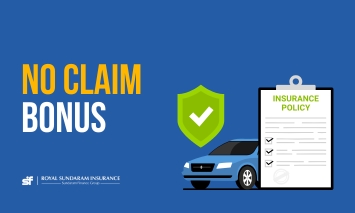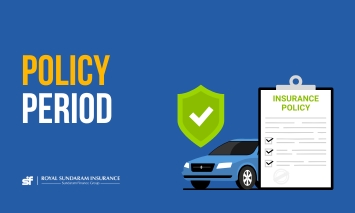How to Reduce Car Insurance Premium?
Mar 31, 2025 • 15 Min Read
In 2024, owning a car is a necessity rather than a luxury. The ownership comes with a price, whether it's for the initial purchase, regular maintenance, or the ongoing car insurance cost.
In India, having at least third-party insurance is not just essential but also legally required. You cannot drive your car on the road without it.
While car insurance is essential for protecting your vehicle and finances, it still feels a burden to many individuals out there since the benefits are only realized in the event of an accident—and who wants their car to meet an accident? Consequently, many people opt for the cheapest premium available and renew without considering the actual coverage of the policy.
But what if we tell you some strategies can help you reduce car insurance premiums?
Read on to find out!
Tips to Reduce Car Insurance Premium
Compare Quotes
This is one of the most effective tips to reduce car insurance premiums. You need to compare quotes. When you buy a car, your dealer will likely suggest taking insurance from their preferred provider. This is because they often have deals or partnerships with specific insurers.
However, to get the best deal, compare quotes from multiple insurance companies and find a policy that offers the same coverage at a lower price.
Boost Your Credit Score
If your credit score is above 700, you can enjoy lower interest rates, faster loan approval, and, the best part, reduced car insurance premiums. Many insurance companies use your credit score as a factor in determining the premium rates.
They believe that individuals with higher credit scores are less likely to file claims, which makes them a lower risk to insure. As a result, a good credit score can help you qualify for lower insurance premiums.
Avoid Making Claims For Small Expenses
Individuals buy car insurance policies to get claim assistance in case something unforeseen happens. However, it’s important to be mindful about when you use your policy.
For minor issues like a small dent or scratch, it’s often better to pay for the repair yourself instead of filing a claim. Handling minor repairs out of pocket helps you keep a clean record with your insurance company, and they offer low premium rates for the following years.
Also, insurers reward a "No Claim Bonus" to policyholders who do not make any claim for consecutive years. This means you can save anywhere between 20% to 50% at policy renewal by avoiding unnecessary claims. So, before filing a claim, think carefully about whether it’s worth it or not.
Avoid Policy Lapse
Every car insurance policy has an expiry date and must be renewed before the respective date; otherwise, your policy will lapse, and all the benefits will cease immediately.
Now, you might think, "I’ll renew the policy after it lapses; why make a hurry?"
But the fact is, it’s not that simple!
When the policy lapses, you lose all the coverage and protection provided. This means if you have an accident or your car is damaged in the lapse period, you’ll have to pay for everything out of your own pocket. Additionally, when you try to renew a lapsed policy, the insurance company might treat you as a higher risk. This could lead to higher premiums or even difficulty in getting a new policy.
To avoid these hassles and reduce car insurance premiums, make sure to renew the policy before it expires. Setting reminders or opting for automatic renewal can help you stay on top of this.
Avoid Unnecessary Add-ons
When purchasing car insurance, the insurer will offer you different add-ons to choose from to enhance base policy coverage. While some add-ons can be useful, it’s important to avoid unnecessary ones that increase your premium without providing real value.
Add-ons like roadside assistance and engine protection might sound appealing, but they may not be necessary for every driver or vehicle.
For instance, if you rarely drive long distances, a roadside assistance package might be an unnecessary expense. On the other hand, if your car has a good ground clearance, engine protection might not make any sense as there are fewer chances of damage.
So, before adding any extras to your policy, consider whether you need them. Consider how you use your car, what’s already included in the basic insurance, and whether the add-on offers real value to you.
Drive Safely
Last but not least, driving safely is one of the simplest and most effective ways to keep your car insurance premiums low.
Insurance companies consider your driving record when determining the premium rates. If you have a history of accidents, speeding tickets, or other traffic violations, your insurance costs are likely to go up. On the other hand, if you maintain a clean driving record, you can enjoy lower premiums.
Conclusion
Reducing car insurance premiums doesn’t have to be complicated. By following these straightforward tips, you can enjoy the protection of car insurance without overpaying.
Make the most out of these strategies, and thank us later!



Discover the perfect insurance plan for you!
Get your free quote now!
Get StartedBy Clicking on Get Started, You agree to our Terms and Conditions and override DNC/NDNC registration.
More like this
View more





.png)